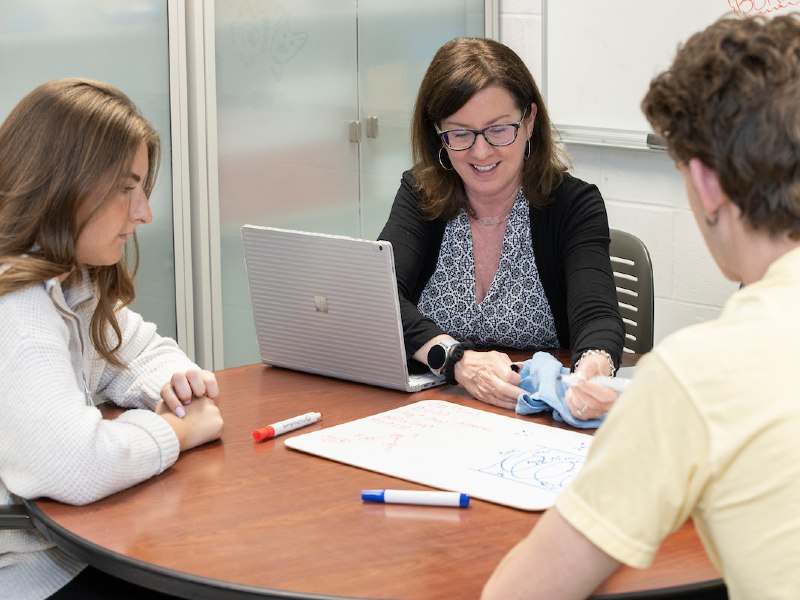
Ellen Yezierski
My Approach to Teaching and Learning
Drawing on modern understandings of learning, people construct their own knowledge and meaning from their experiences and interactions with the world and other people. As a teacher-scholar, I employ these ideas to create a learning environment in the classroom and research laboratory with inquiry, sensemaking, and support in mind. Students learn best when they have a need to know. Creating a positive climate begins by collaborating with students to build a learning community. Being patient and kind while setting high expectations brings out their best work. I encourage them to take intellectual risks and show them how I do the same. Such risks are the hallmark of research and discovery as well as critical to teaching and learning. Creating the buy-in necessary to engage students in rich experiences that lead to deep learning means placing students at the center of the activity. Holding students accountable for their learning means they need to be engaged in discussion and activities where they are making sense of course readings, data, concepts, models, and the arguments of other students and scholars. In essence, I view myself as a cognitive coach; students are the players in the research and learning game and the focus of the activity. As a coach, not a player, I rarely lecture in courses. Students quickly figure out that I am not the knowledge source but rather the expert who designs and facilitates experiences to help them develop their own mastery of content and skills.
My Teacher-Scholar Journey
Educated as a secondary chemistry teacher and starting my career teaching high school chemistry, I learned and applied the basics about how humans learn and best practices for reform-based and student-centered approaches. I continued my studies in educational psychology applied to science education, curriculum and instruction, and chemistry education research. As a discipline-based education researcher and professor, I have been studying the process of transforming learning environments from “teaching as telling” to “learning through sense- and meaning-making.” This important shift, from the teacher talking and showing things to students to students engaging in carefully facilitated activities to uncover concepts through models, data, animations, and simulations, drives my research on teacher professional development and teacher change. My teaching has been likewise aligned with this student-centered approach. Specifically, I structure classroom activities that create conditions under which humans naturally learn. Being a teacher-scholar means my own experiences as an instructor and researcher are intertwined. I concurrently pursue and apply knowledge, particularly as a producer and consumer of scholarship in education. As a knowledge producer, I have been creating and studying NSF-funded secondary teacher professional development institutes (Target Inquiry and VisChem) that employ learner-centered approaches modeling the reformed pedagogies for teachers to learn. As a consumer, I frame my courses around chemistry education research (including my own) as well as research from science education and cognitive, social, and educational psychology. Even as a scholar-teacher leader, my instructor development work at the Center for Teaching is driven by discipline-based education and psychology research.
Knowledge is Power
“Miami is the place where curiosity, discovery, challenge, and growth are woven together in the teacher-scholar model. Miami faculty simultaneously act as learners and teachers. We engage knowledge of how people learn to facilitate the intellectual development of our students while working alongside them to uncover new understandings.”
Education
Ph.D. Arizona State University
M.Ed. Northern Arizona University
B.S. University of Arizona
More About Me
With a focus on improving student learning through instructor development, my research, practice, and leadership have influenced thousands of educators in secondary and college/university settings across the globe.